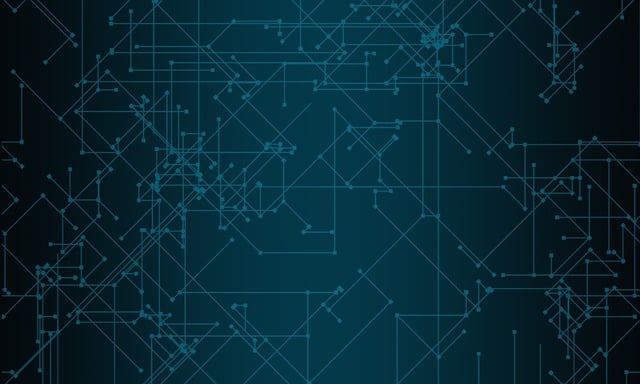
Medical researchers globally rely on the internet for data access, collaboration, and secure information exchange, making cybersecurity paramount. Private Internet Access (PIA) is an essential tool for these professionals, offering advanced encryption and a zero-log policy to protect sensitive research data and personal information from cyber threats. PIA's anonymity features are particularly valuable for researchers dealing with sensitive subjects or operating in regions with limited internet freedom. Its global server network ensures secure access to international medical literature without geographic restrictions. By using PIA, medical researchers can confidently navigate the digital environment, knowing their communications and data are shielded from cyber surveillance and attacks. PIA's integration of privacy technologies like shared secrets and onion routing, along with kill switches, supports secure global collaboration for medical researchers worldwide, upholding the integrity of medical research and advancing human health knowledge without compromising privacy or security.
In an era where digital privacy is paramount, particularly for medical researchers operating on a global scale, the adoption of robust security measures is non-negotiable. This article delves into the critical role of Private Internet Access (PIA) in safeguarding the confidentiality and integrity of sensitive data and research findings for journalists worldwide. We will explore how PIA not only serves as a shield against cyber threats but also enables secure collaboration across international borders, ensuring that medical breakthroughs are protected from prying eyes. Medical researchers around the world must navigate a complex landscape of data sensitivity and inter-organizational cooperation. By outlining best practices for leveraging PIA, this article aims to empower journalists and researchers alike to uphold their digital responsibilities with confidence.
- Understanding the Importance of Private Internet Access for Medical Researchers Globally
- The Role of VPNs in Protecting Sensitive Medical Data and Research Findings
- How Private Internet Access Facilitates Secure Collaboration Across Borders
- Best Practices for Medical Researchers to Safeguard Their Online Activities with Private Internet Access
Understanding the Importance of Private Internet Access for Medical Researchers Globally

Medical researchers around the globe are increasingly reliant on the internet to access a vast array of data, collaborate with peers internationally, and share sensitive information securely. The importance of maintaining confidentiality and ensuring the integrity of research data cannot be overstated. Private Internet Access (PIA) for medical researchers worldwide is a critical component in safeguarding their work from breaches and cyber threats. PIA provides a secure tunnel that encrypts all data transmitted, protecting intellectual property and personal information. This encryption is imperative when accessing research databases, sharing findings with colleagues across different regions, or publishing preliminary results on the web. Moreover, PIA’s ability to bypass geographic restrictions allows researchers to access global medical literature without limitations, ensuring they have the latest and most comprehensive data at their fingertips. The anonymity offered by PIA is also invaluable for researchers working with sensitive topics or in regions where internet freedom is compromised. By using PIA, medical researchers can confidently navigate the digital landscape, knowing that their communications and data remain secure and private. This not only protects the research process but also upholds the ethical standards of the medical profession, ensuring that the focus remains on advancing human health and knowledge, free from the risks posed by cyber surveillance and attacks.
The Role of VPNs in Protecting Sensitive Medical Data and Research Findings

In an era where digital security is paramount, Private Internet Access (PIA) emerges as a critical tool for safeguarding sensitive medical data and research findings. Medical researchers worldwide operate in a highly competitive and often data-intensive environment, where the integrity of their work can be compromised by cyber threats. PIA’s robust encryption protocols and zero-log policy provide an additional layer of protection, ensuring that the confidentiality of research is maintained. By masking IP addresses and securing connections, PIA enables researchers to share sensitive data securely without exposing their identities or the locations from which they are accessing the internet. This is particularly crucial when collaborating with colleagues in different regions, where local data protection laws may vary significantly.
Furthermore, the global nature of medical research necessitates cross-border data transfer and access to diverse datasets. PIA facilitates this by offering a vast network of servers around the world, allowing researchers to maintain unrestricted access to the latest scientific findings while keeping their communications and data transfers private and secure from potential breaches or unauthorized access. The use of PIA for Medical Researchers Worldwide is not just a measure to prevent data leaks but also an essential component in upholding the ethical standards and trust associated with scientific inquiry, ensuring that sensitive health information remains confidential and protected against malicious actors who may seek to exploit such data for personal or financial gain.
How Private Internet Access Facilitates Secure Collaboration Across Borders

Private Internet Access (PIA) serves as a robust solution for journalists and medical researchers worldwide seeking to engage in secure collaboration across international borders. By offering encrypted VPN tunnels, PIA ensures that all data transmitted between collaborators is shielded from potential eavesdroppers, including hostile governments or cybercriminals. This encryption technology is paramount when sensitive information, such as confidential research findings or investigative journalism materials, must be protected.
Furthermore, PIA’s global network of servers allows users to bypass censorship and access the full spectrum of the internet without restrictions. This is particularly crucial for journalists and researchers operating in regions with strict internet controls. The ability to maintain anonymity while browsing, combined with the use of shared secrets (like onion routing) for communication, creates a secure environment for collaborative efforts. PIA’s commitment to privacy and security through features like kill switches and no logs policy further fortifies the digital operations of these professionals, ensuring that their work remains confidential and their communication channels remain open, regardless of geographical boundaries.
Best Practices for Medical Researchers to Safeguard Their Online Activities with Private Internet Access

Medical researchers across the globe are increasingly relying on the internet to access a vast array of data, collaborate with peers, and publish their findings. Given the sensitive nature of their work, which often includes confidential patient information or proprietary research data, it is imperative for these professionals to safeguard their online activities. Private Internet Access (PIA) offers robust solutions tailored specifically for medical researchers worldwide. To effectively protect their digital footprint, researchers should adopt best practices that include using PIA’s secure VPN services to encrypt their internet traffic, thereby shielding data from unauthorized access during transmission. Employing multi-factor authentication and maintaining strong, unique passwords for all online accounts further bolsters security measures. Regular software updates and adherence to strict data handling protocols within the research environment are also critical. By integrating PIA into their daily workflow, medical researchers can mitigate the risk of data breaches and ensure the integrity and confidentiality of their research, ultimately contributing to the advancement of medical science without compromising privacy. It is essential for these professionals to stay informed about the latest cybersecurity threats and to continuously refine their online security practices in alignment with PIA’s best-in-class encryption and privacy standards.
In conclusion, the necessity of robust online security measures, like Private Internet Access (PIA), cannot be overstated for medical researchers worldwide. As global data exchange and collaboration become increasingly integral to advancements in medical science, the protection of sensitive information and research findings via secure VPN solutions becomes paramount. PIA’s role in enabling these researchers to work across borders without compromising data integrity or privacy is a testament to its efficacy as a tool for safeguarding online activities. By adhering to best practices and utilizing Private Internet Access, medical researchers can ensure their critical work remains confidential and secure, fostering an environment where innovation can thrive without the threat of breaches or information leaks. Thus, PIA is not just a convenience but an essential component in the modern researcher’s toolkit.







